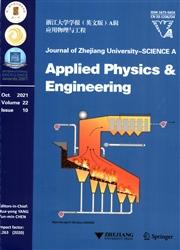Underwater minirobots actuated by hybrid driving method
IF 3.9
3区 工程技术
Q1 ENGINEERING, MULTIDISCIPLINARY
引用次数: 0
Abstract
Underwater minirobots have attracted significant interest due to their value in complex application scenarios. Typical underwater minirobots are driven mainly by a soft or rigid actuator. However, soft actuation is currently facing challenges, including inadequate motional control accuracy and the lack of a continuous and steady driving force, while conventional rigid actuation has limited actuation efficiency, environmental adaptability, and motional flexibility, which severely limits the accomplishment of complicated underwater tasks. In this study, we developed underwater minirobots actuated by a hybrid driving method (HDM) that combines combustion-based actuators and propeller thrusters to achieve accurate, fast, and flexible underwater locomotion performance. Underwater experiments were conducted to investigate the kinematic performance of the minirobots with respect to the motion modes of rising, drifting, and hovering. Numerical models were used to investigate the kinematic characteristics of the minirobots, and theoretical models developed to unveil the mechanical principle that governs the driving process. Satisfactory agreement was obtained from comarisons of the experimental, numerical, and theoretical results. Finally, the HDM was compared with selected hybrid driving technologies in terms of acceleration and response time. The comparison showed that the minirobots based on HDM were generally superior in transient actuation ability and reliability.混合驱动水下微型机器人
水下微型机器人由于其在复杂应用场景中的价值而引起了人们的极大兴趣。典型的水下微型机器人主要由软驱动器或刚性驱动器驱动。然而,软驱动目前面临的挑战包括运动控制精度不高,缺乏连续稳定的驱动力,而传统的刚性驱动存在着驱动效率、环境适应性和运动灵活性等方面的限制,严重限制了复杂水下任务的完成。在这项研究中,我们开发了一种混合驱动方法(HDM)的水下微型机器人,该方法结合了基于燃烧的致动器和螺旋桨推进器,以实现准确、快速和灵活的水下运动性能。通过水下实验研究了微型机器人在上升、漂移和悬停三种运动模式下的运动学性能。采用数值模型研究了微型机器人的运动学特性,并建立了理论模型来揭示控制驱动过程的机械原理。通过对实验、数值和理论结果的比较,得到了满意的结果。最后,将HDM与选定的混合动力驾驶技术在加速和响应时间方面进行了比较。结果表明,基于HDM的微型机器人在瞬态驱动能力和可靠性方面普遍具有优势。
本文章由计算机程序翻译,如有差异,请以英文原文为准。
求助全文
约1分钟内获得全文
求助全文
来源期刊

Journal of Zhejiang University-SCIENCE A
工程技术-工程:综合
CiteScore
5.60
自引率
12.50%
发文量
2964
审稿时长
2.9 months
期刊介绍:
Journal of Zhejiang University SCIENCE A covers research in Applied Physics, Mechanical and Civil Engineering, Environmental Science and Energy, Materials Science and Chemical Engineering, etc.
 求助内容:
求助内容: 应助结果提醒方式:
应助结果提醒方式:


